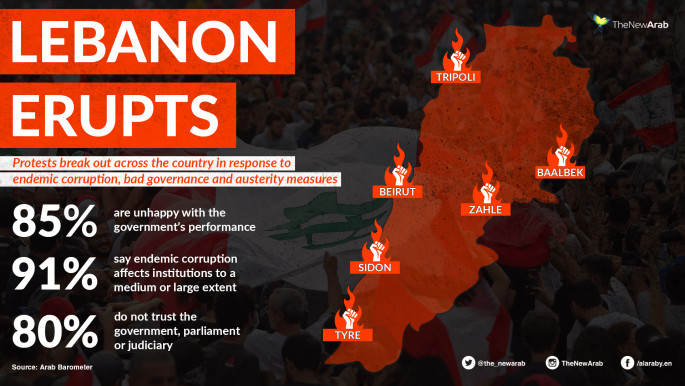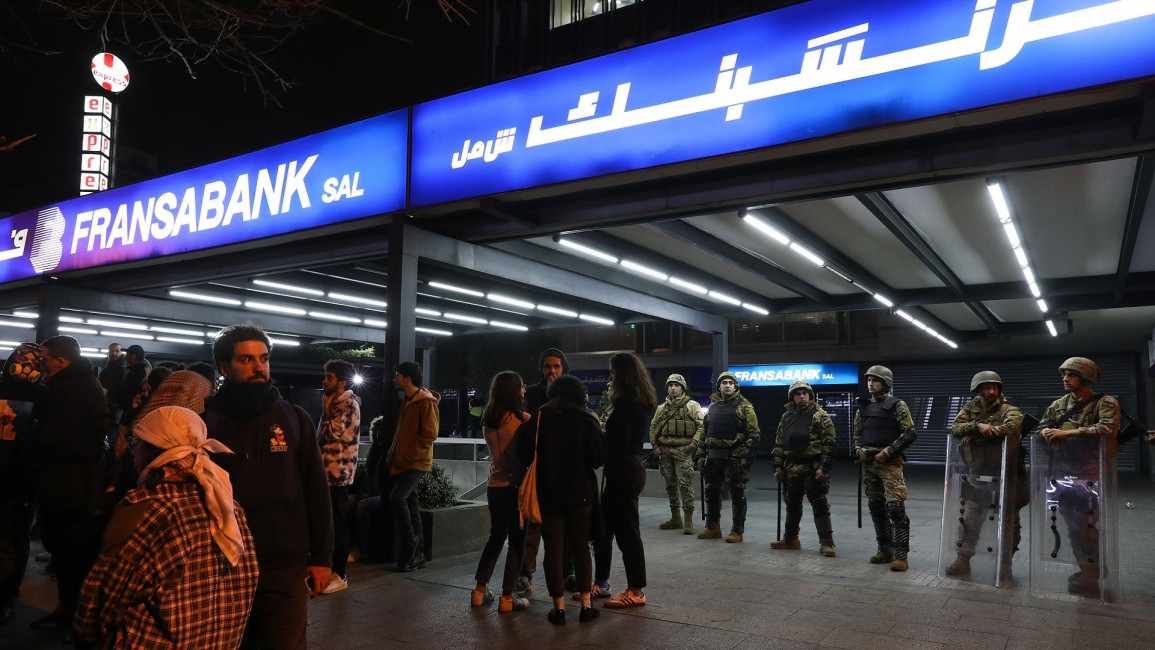Lebanon to cease Eurobonds payments to ease pressure on dwindling foreign reserves
Lebanon said it will stop payments of dollar-denominated Eurobonds over the next 15 years, to ease pressure on the country's dwindling foreign reserves, the finance ministry said on Monday.
"The government has decided to discontinue payments on all of its outstanding US$-denominated Eurobonds," said an English-language statement posted on the finance ministry's website.
Lebanon was due to default on its outstanding $30 billion Eurobonds and missed a $1.2 billion Eurobond payment just before a 9 March deadline - the first time in its history it had defaulted on a payment.
Beirut said it would seek restructuring negotiations with creditors over the rest of its debt pile, amid its worst economic crisis in decades.
Lebanon's debt burden, long among the largest in the world, is now equivalent to nearly 170 percent of its gross domestic product (GDP).
According to Marwan Barakat, head of research at Bank Audi, Lebanese banks owned $12.7 billion of the country's outstanding 30 billion Eurobonds as of the end of January.
The central bank held $5.7 billion and the remaining were owned by foreign creditors, he said.
Media have reported that Lebanese banks have sold a chunk of their Eurobonds to foreign lenders.
On Monday, the finance ministry said it intended to enter into "good faith discussions with its creditors as early" as possible.
 |
Lazard Freres, a firm serving as a financial advisor to the Lebanese government, "has been instructed to initiate arrangements as appropriate under the current circumstances to facilitate such good faith discussions", the statement read.
The finance ministry said it would hold an investor presentation on 27 March.
The Lebanese government's next step might be to ask for a bail-out from the International Monetary Fund (IMF).
Due to political sensitivities, the IMF has so far only provided Lebanon with technical assistance to help it cope with its financial crisis.
Many are increasingly in favour of an IMF rescue plan, saying it would provide the kind of assurances creditors are looking for in restructuring negotiations.
Yet others are wary of any austerity package that might be linked to the IMF loan, potentially sparking new protests in the country.
Lebanon's powerful Hezbollah movement, which has been the main opponent of an IMF bailout, said this month it could accept help from the world body under "reasonable conditions".
One of the most heavily indebted countries in the world, the small Mediterranean country had never defaulted before this month.
But with foreign reserves plummeting officials have said they have no other choice but to restructure the country's debt.
Earlier this month, Finance Minister Ghazi Wazni said the country's foreign reserves stood at a little more than $20 billion.



![A pro-Palestinian encampment at Columbia persists, despite recent arrests. [Brooke Anderson/The New Arab]](/sites/default/files/styles/image_212x120/public/2024-04/417084c8-3251-4705-8422-058fca1d5709.jpg?h=ddb1ad0c&itok=M1RtdyYz)